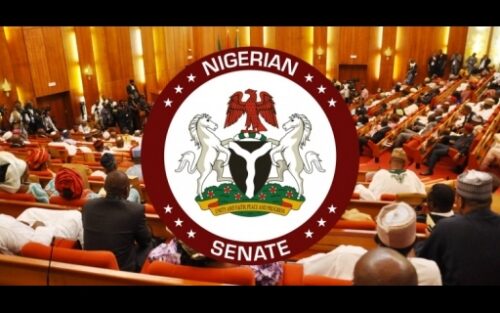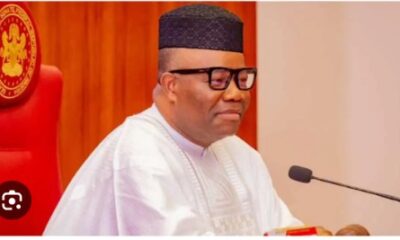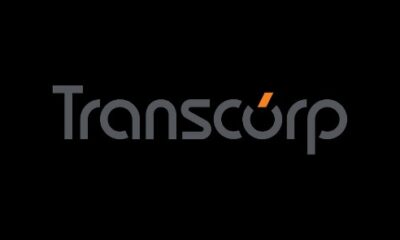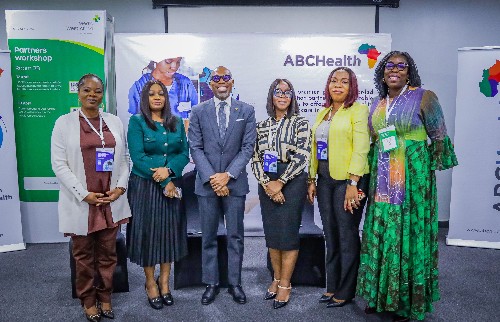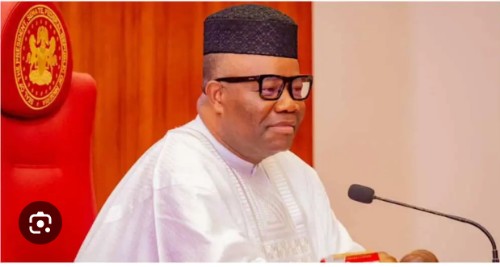The Senate through its Public Accounts Committee has queried the State House and 557 Ministries, Departments, and Agencies over the failure to account for N969 billion “intangible assets” in the 2019 budget.
This revelation is contained in the 2019 Annual Report of the Auditor-General of the Federation being considered by the Senate Public Accounts Committee.
Members of the panel, chaired by the vice-chairman of the committee, senator Ibrahim Hadeija while considering the report, lamented the humongous amount categorised as Intangible Assets in the 2019 budget as captured in the Auditor-General of the Federation’s report.
The report read, “Audit observed from a review of notes 36 and 36A (Intangible Asset) to the FGN’s Consolidated Financial Statement that the sum of N969 Billion was categorised under Notes 36A as Intangible Assets without a schedule showing the classification/nature of the intangible assets contrary to the provision of the International Public Sector Accounting Standard) 31.
“There was no disclosure to enable the audit to confirm which of the Intangible Assets has finite and infinite life, and bad for a determination whether amortisation should be or not.”
The representative of the Accountant-General of the Federation, Shuaibu Sikiru, said the template would be redesigned to accommodate the observation in subsequent years.
Among the 558 agencies are the State House, Bureau of Public Enterprises, Bureau of Public Procurement, National Population Commission, Federal College of Forestry, Ibadan, Federal College of Forestry, Jos, National Orientation Agency, Bureau of Public Service Reforms and Nigeria Police Academy, Wudili.
Others are the Federal Civil Service Commission, Office of the National Security Adviser, Federal Ministry of Interior, Nigeria Immigration Service, Federal Fire Service, Police Formation and Command, Headquarters, Nigeria Security and Civil Defence Corps, Office of the Head of the Civil Service of the Federation, Federal Government Staff Housing Loans Board, Federal Training Center, Ilorin, Office of the Economic Adviser to the President and the National Broadcasting Commission.
Also, Voice of Nigeria, Nigerian Film Corporation, National Theatre, Federal Ministry of Information, Headquarters, News Agency of Nigeria, Administrative Staff College of Nigeria, and many others.
It was gathered that the National Assembly last week passed the Federal Audit Service Bill which prescribes, among others, a five-year jail term for accounting officers, who prevent the office of the Auditor-General for the Federation from accessing their account books.
The chairman, Senate public accounts committee, Matthew Urhoghide, told journalists that the proposed legislation sought to strengthen the office of the Auditor-General for the Federation.
He said, “The office is supposed to check systemic corruption in Nigeria by checking all expenditures of the ministries, departments and agencies of government as provided for by Section 85 of the constitution.
“The second aspect of the bill is the establishment of the Federal Audit Commission. An audit is a very peculiar department, but right now, we have those who did not study accounting being employed and working in the Audit House probably for political reasons.
“The commission will be responsible for the recruitment of proper staff that would be able to audit the accounts of the over 797 federal agencies.
“The least penalty we have in the bill for an individual is five-year imprisonment or a fine of N5m or both.
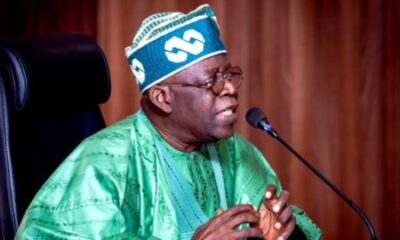
 BIG STORY2 days ago
BIG STORY2 days ago
 BIG STORY2 days ago
BIG STORY2 days ago
 BIG STORY24 hours ago
BIG STORY24 hours ago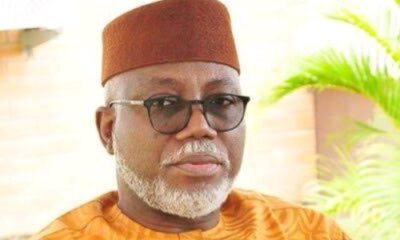
 BIG STORY4 days ago
BIG STORY4 days ago
 BIG STORY4 days ago
BIG STORY4 days ago
 BIG STORY5 days ago
BIG STORY5 days ago
 BIG STORY3 days ago
BIG STORY3 days ago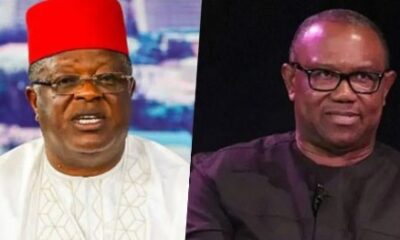
 BIG STORY2 days ago
BIG STORY2 days ago



